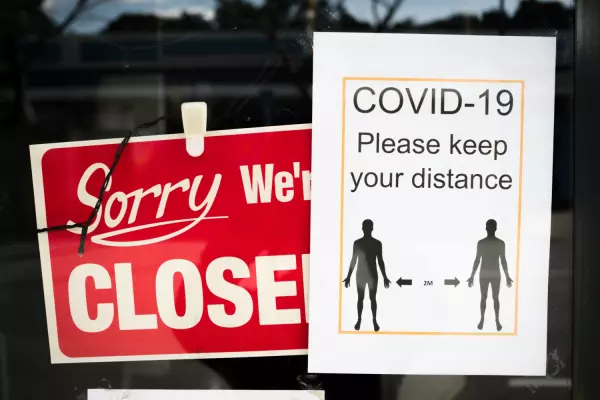Businesses are struggling to get enough workers into the country and hundreds of families remain separated after more than a year apart.
But despite reports of long waits to book rooms, MIQ has been well below capacity for months and it consistently uses fewer rooms than the allocations just seven days out suggest it would.
Each day the Ministry for Business, Innovation and Employment (MBIE) releases data on the number of allocated rooms for each of the next 14 days.
But the number of rooms that end up being occupied is routinely well short of these projections.
BusinessDesk analysis shows that since December, the number of rooms occupied on a given day is 184 less than the seven-day-ahead allocation, and 386 rooms below the 14-day-ahead allocation, on average.
In the period since the Australian travel bubble opened on April 19, those figures increase to 245 and 647, respectively. Many rooms allocated for arrivals from Australia were not returned to the system after the bubble was announced.
The average daily room capacity since December is about 4,200, meaning close to 10% of rooms which were to be occupied according to 14-day-ahead allocations end up sitting empty.
Overall an average of 827 rooms have been empty each day since December 3, increasing to 1,481 since the bubble opened.
Recently 900 rooms have been set aside as a contingency, 200 are offline at any time for maintenance and other out of action to accomodate a new system of cohorting of arrivals.
Data not being recorded
On top of this MBIE says it does not record data on MIQ occupancy in a way that would enable it to track the discrepancy between allocations and actual occupancy as we have above.
The data for our analysis was painstakingly collated into a usable format, by a member of the public, Cameron Conradie – a recent migrant who has been separated from his family for more than 500 days.
Preferring to report figures from an official source, we first requested the data in a spreadsheet or other database format from MBIE only to be told that "... MIQ’s priority is on looking ahead at the forward bookings received in the Managed Isolation Allocation booking system. We make the daily data calculations fresh each day and don’t retain a historical time series on a consolidated database".
When BusinessDesk pointed out the PDFs contained a chart that appeared to be generated in Microsoft Excel – which would require data to be entered into a spreadsheet, MBIE replied: "The data in the spreadsheet is overwritten each day with new data for the snapshot produced on that day."
We also requested daily figures for the number of rooms occupied, the room capacity and the total number of people in MIQ facilities since MIQ began operating and were told the same thing about each of these metrics.
This means the government has no historical record of MIQ's past occupancy or the accuracy of its forward allocations and therefore no way to assess its performance.
The upshot for those forced to wait months for a spot in MIQ is hundreds of rooms that are listed as unavailable just one or two weeks out end up being available, with the government unable or unwilling to measure the full extent of this over-allocation and adjust for it.
MBIE response
MBIE says the discrepancy between allocations and actual occupancy is due to the suspension of flights from countries considered to be high risk, as well as flight cancellations and passengers testing positive for covid-19 and being unable to board their flight as a result.
"The suspension of flights from mid-April from India, and other Very High Risk countries negatively impacted the numbers arriving. These people already held MIQ vouchers before the announcement, which resulted in the difference between rooms allocated and rooms occupied. The rolling suspension of people from Very High Risk countries is continuing to impact this – people are booking vouchers in anticipation that the suspension will lift. These vouchers are being cancelled when we are informed of the extension of the suspension period," a spokesperson for MBIE said.
"We are constantly in communication with passengers from Very High Risk countries to confirm their travel plans, and with airlines, but due to the international upheaval to air travel caused by COVID-19, flight schedules and flight loads can be very changeable. Flight cancellations, as well as people testing positive for COVID-19 prior to departure, can also impact occupancy."
Critical workers
We were provided with data on the number of critical workers arriving into New Zealand each day for the first five months of the year.
Labour made an election promise that 10% of MIQ rooms would be made available for critical workers. It said that would equate to 1,400 critical workers admitted to the country every month – based on a monthly capacity of 14,000 in MIQ.
How exactly is that going? The target was exceeded in the first three months of the year, but arrivals in the two months dropped below 1,400 since March.
Overall, the average of 1,366 per month between January and the end of May is close to the promised level, but there would need to have been an increase in the rate of admissions since then to maintain it.
* This story has been updated since publication to include a statement from MBIE.














